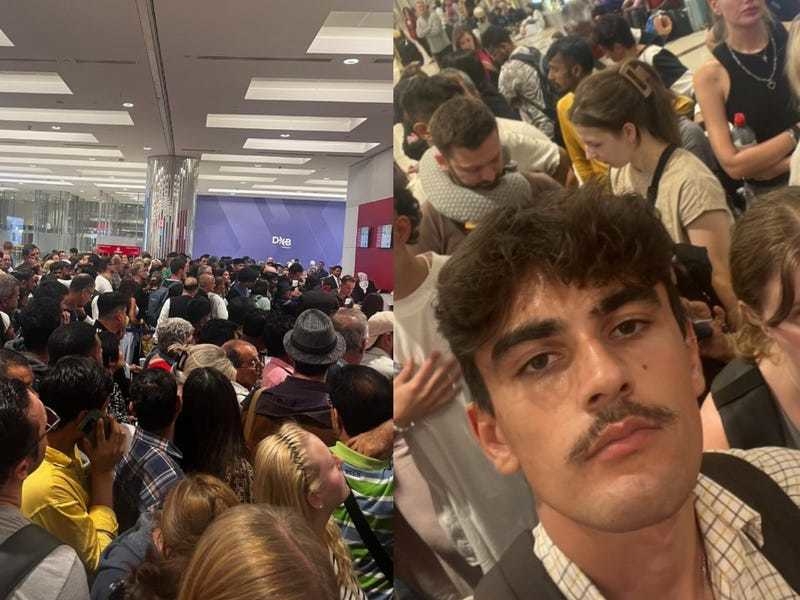Jersey Royal potatoes are one of the biggest fresh produce brands in the UK food retail sector and are the Island’s largest farming export. Paula Thelwell finds out more from The Jersey Royal Company’s Mike Renouard
THE first Jersey Royals of the season are eagerly awaited by British chefs and foodies and promoted nationwide through PR and marketing campaigns and primetime TV advertisements.
As it is a premium product in a competitive market, the Jersey Royal’s USP is protected by copyright law and only those grown in the Island can carry the name – in the same way that France has been granted sole use of the word ‘champagne’.
The days when hundreds of growers exported potatoes and merchants’ warehouses lined the Esplanade, while horse-drawn carts and lorries snaked down Victoria Avenue past First Tower in a queue from the harbour, are long gone.
While old Jersey farming families are still involved, the industry is controlled by two UK-owned agri-enterprises, The Jersey Royal Company The Jersey Royal Company – part of Produce Investments group – and Albert Bartlett Jersey, the local division of a Scottish family-owned company and the UK’s leading supplier of potatoes.
Mike Renouard is Jersey Royal’s business unit director. Born in the Island and educated at Hautlieu, he has a higher national diploma from Seale-Hayne Agricultural College in Devon and a first-class honours degree in environmental studies from the Open University.
His practical farming experience was honed on arable and dairy farms in the UK and Jersey.
Being part of a specialist group that operates on a nationwide scale is key to the Jersey Royal’s success in the UK food market, which is dominated by the ‘big four’ multiples – Tesco, Asda, Sainsbury’s and Morrisons.
He said: ‘Jersey Royals are a very seasonal product and, as such, they have to be reintroduced to the retailers and consumers each year.
‘Working with the wider group means that the business as a whole works closer with the retailers as category managers for a full range of potato products year-round.
‘While the last few seasons have been challenging, having had to cope with Covid, Brexit and unseasonal weather conditions, the owners of Produce Investments have continued to invest heavily in the Island.
‘This has allowed us to introduce new technologies, increasing productivity and reducing costs, including a decrease in our reliance on a migrant workforce which has reduced by more than 50% over the past ten years.’
It is also a two-way relationship, with local staff skills used across the group companies and seasonal staff working in both the UK and Jersey in between seasons.
The Jersey Royal Company is the Island’s biggest farming business, founded in 2004 following a merger of several local family-owned farming companies and produce marketing groups.
Its parent company is a leading producer of potatoes and daffodils and specialists in crop storage and agri-tech. It operates throughout the UK serving retail, food service, wholesale and trading sectors.
Then, in 2018, Produce Investments accepted a £52.9 million takeover bid from private equity and venture capital firm Promethean Investments LLP.

Today, the local business farms about 8,000 vergées across 1,400 fields in all 12 parishes, growing, processing and exporting more than half of the Island’s entire annual crop.
Albert Bartlett Jersey processes and exports Royals grown by seven local farmers across 5,000 vergées. In addition, there is a handful of independent producers.
With renewed calls for greater trade and improved freight links with France, is there mileage in opening new markets in Europe?
Mr Renouard is not convinced.
He said: ‘The Royal does not have the same consumer following in Europe that it does in the UK, which is our main market.
‘With the global increases in the cost of living, it is the right time to consolidate, rather than expand, production for the next few years.
‘In saying that, we do have some markets outside the UK with some crops now being exported to Poland and Scandinavia despite all the restrictions and paperwork required since Brexit.
‘It is interesting to note that the export potato crops are still an integral part of the UK food supply chain and that north-bound shipping helps in part to subsidise south-bound goods coming into the Island.’
The changing face of farming
After the Liberation, there were more than 1,000 small family farms in Jersey, mostly growing Royals and mixed crops and keeping cows, pigs and poultry. Seven decades later, the agricultural industry has been transformed into two major sectors – Jersey Royal production and dairy.
For a small island, Jersey has led in innovation since the agricultural revolution.
With geographic, climatic and growing conditions ideal for cultivating potatoes and other crops, it has produced the premium British early-season potato and the Jersey cow. Locally bred and refined in Victorian times, the Jersey can be found across most of the continents and is the second-largest breed in the global dairy industry.
These sectors, combined with production of flowers and other crops until the late-20th century, have long required seasonal workers, first from France, then Portugal – largely Madeira – and Eastern Europe. Now they come from South America, the Pacific rim and the former Soviet Union.
The Jersey Royal Company’s workforce comprises permanent and seasonal roles amounting to a peak season workforce of more than 250, ranging from a permanent management team to seasonal workers and roles common to all large business such as finance, human resources, administration and IT.
The seasonal workforce is sourced from over ten countries – employed on six-to-11-month contracts – including Eastern Europe, Brazil, Kenya, the Philippines and Tajikistan. It is a situation mirrored in agriculture in the UK and Europe.
Mr Renouard said: ‘While we have managed to retain a good deal of people who now have settled status post-Brexit, it is increasingly difficult to encourage new workers to the Island.
‘This is, in part, due to the increased costs of coming to work in Jersey with the need for work permits, visas and the increased costs of travel post-Covid. It is much easier for European workers to remain in Europe to find work than it is to come to the UK or Jersey.
‘Limitations of work permits and visas mean that workers without settled status can only work in the Island for a maximum of nine months unless they are classed as “skilled”.
The local industry has come a long way since Hugh de la Haye first cultivated the forerunner of the Jersey Royal – the Jersey Royal Fluke – in 1878 at Bushy Farm overlooking Bellozanne Valley in St Helier.’
Farming technology has developed in leaps and bounds over the ensuing 145 years, but the success of the Jersey Royal still depends on local knowledge, traditional planting plans and experience passed down through the generations.
Mr Renouard said: ‘Growing a heritage variety such as a Jersey Royal can be very different from growing other potato varieties anywhere else in Europe with many traditional methods still employed such as the use of vraic, winches pulling up ploughs on the côtils and hand-planting.
‘Even finding your way around the Island to fields at the end of a lane that you would probably only ever go down to get to those fields, takes time to get used to.’
External forces
There are other factors beyond the industry’s control – energy and cost-of-living crises, and global uncertainty as war continues to rage in Ukraine and food shortages – with which farmers worldwide have to contend.
Mr Renouard said: ‘We don’t like to think of future threats but rather future challenges. Staff limitations and climate change are probably the greatest challenges, together with the cost of production that these bring. We have had discussions and are looking at how to tackle some of these challenges.
‘Government support for farming in Jersey is crucial to the survival of the industry, as it is in every country around the world.
‘In fact, Jersey farmers get the least support of all farmers in Europe per head of population, and it is one of the least supported agriculture communities globally.
‘To lose the rural landscape and services that the farming industry provides would have a massive impact on the Island community.
‘Succession is another challenge for agriculture, as smaller family farms struggle to survive and youngsters choose different career paths. Allowing people to develop a career path in agriculture is important to us.
‘That does not necessarily mean being a farmer in the traditional meaning, as you can develop a career in animal husbandry, agronomy, engineering, food technology, human resources or health and safety, for instance.’
The group businesses, he added, have already begun to adapt to global changes.
He said: ‘We have consolidated our sites and invested in technology to reduce our reliance on labour and increase efficiencies.
‘While we have reduced the area of potatoes grown “in-house”, we are working with other Island growers and farmers to generate a more sustainable business by increasing the number of crops in rotation.
‘This will benefit our soils by increasing organic matter and reducing pest and disease levels, leading to increased yields and reduction in inputs allowing us to invest more in crops that benefit the rural environment and wildlife around us.
‘It also benefits the Island in its goal to become carbon-neutral as we increase carbon storage in our soils. We are also working with other Jersey farmers, in collaboration with Trinity Agtech, to better understand our carbon footprint for the whole industry.’
With its headquarters in London, Trinity AgTech is a member of the Trinity Natural Capital Group of companies. Its raison d’être is to help boost the profitability and sustainability of agriculture.
As the credit crunch bites and some shoppers are turning away from premium and fresh produce in favour of cheaper frozen varieties, what does the immediate future hold for The Jersey Royal Company?
Mr Renouard said: ‘The key to maintaining demand in the current climate is strengthening the quality and provenance messaging of the brand and maximising our target market by simplifying recipes and targeting younger generations.
‘To achieve this our annual marketing campaign for the coming season is focused on short-form celebrity chef videos, and “simply seasonal” – enjoying Jersey Royals in six simple steps.
‘Jersey Royals remain one of the biggest brands in fresh produce and, despite the ongoing issues, there remains a strong following of shoppers wanting to enjoy fresh, seasonal produce.’
What would Hugh de la Haye make of that?
One could hazard a guess that this legend of the local farming industry and Mr Renouard would agree that Jersey, without its unique potato – or its world-renowned cow – would be a poorer and much less special place.

-
Potato lorries coming in from the west of the Island in 1959 queue along Victoria Avenue to have their loads weighed. On this particular day, the line stretched from the Weighbridge almost to First Tower. With the season fast approaching its peak, farmers were rushing to harvest their crop before the prices per cwt (hundred pounds) dropped too low due to steadily increasing supplies of home-grown produce on the English market. On this Sturday (23 May), a total of 921 loads were weighed fetching a price of between 39 to 42 shillings per cwt






